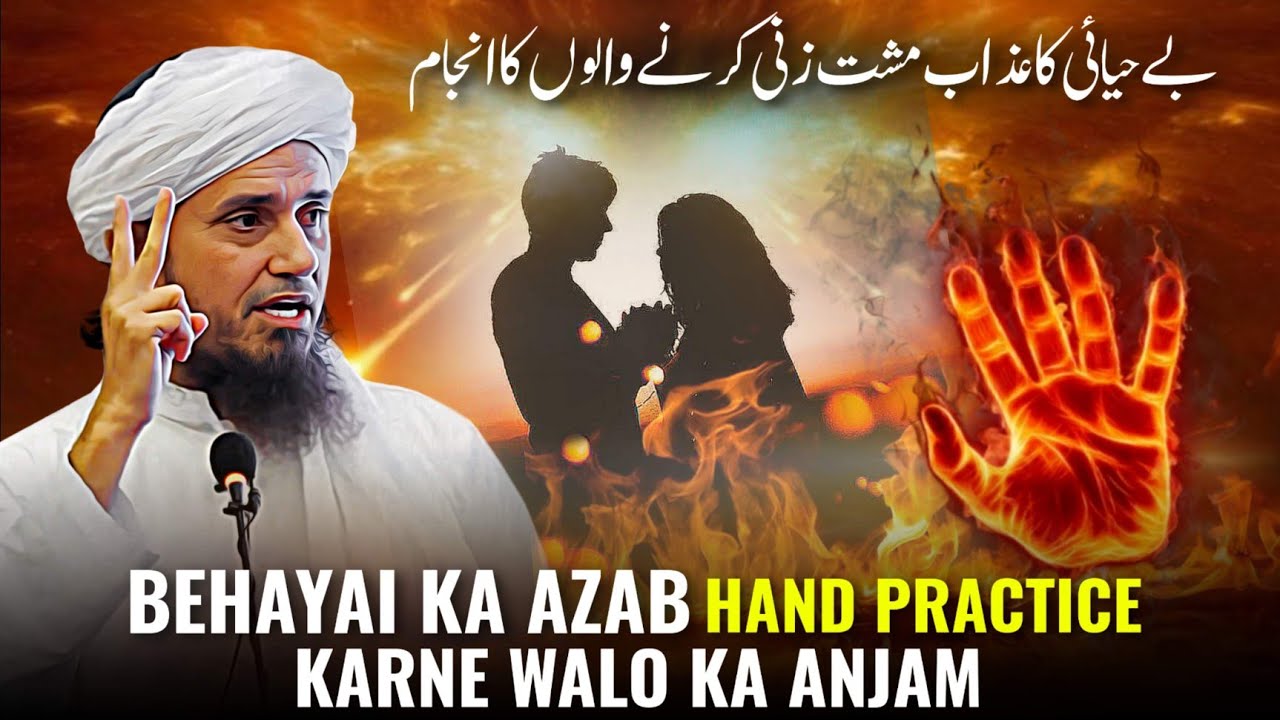Quran me Grammar ki Ghalati? Mufti Tariq Masood Sb ki Tardeed | Barelvi Ulama ki Raye | Isa Zahid
Summary
TLDRThe transcript discusses an incident involving Mufti Tariq Masood, a well-known Islamic scholar. He made a statement about the grammar of the Quran that caused controversy, as many scholars found it problematic. Mufti Masood acknowledged his mistake, clarifying that his intention was never to question the Quran's authenticity. He explained that his words were misunderstood and apologized for any confusion caused. Scholars emphasized that Quranic grammar transcends typical rules and should not be evaluated by them. The importance of adhering to the original script of the Quran was highlighted.
Takeaways
- 🕌 The speaker discusses a famous quote that warriors fall in battle, emphasizing that mistakes are made by those who take on great challenges.
- 📖 Mufti Tariq Masood, a respected religious scholar, made an error in his speech while discussing the grammatical aspects of the Quran.
- ⚖️ Religious scholars criticized Mufti Tariq Masood's statements, pointing out that his interpretation of Quranic grammar was incorrect.
- 🗣️ Scholars from the Ahle Haq tradition emphasized that errors should be corrected openly, regardless of who made the mistake.
- 📚 Mufti Tariq Masood quickly retracted his statements, clarifying that his intent was not to criticize the Quran but to explain certain grammatical nuances.
- 🔍 The issue arose from Mufti Tariq Masood's discussion on Quranic script and grammar, where he implied some words in the Quran were grammatically incorrect.
- 💡 He acknowledged that his explanation may have confused the audience, leading to misunderstandings about the Quran's infallibility.
- ✍️ Prominent scholars like Maulana Mansoor Mengal and Mufti Taqi Usmani supported the stance that Quranic script should not be judged by conventional grammar rules.
- 📜 The consensus among scholars is that Quranic writing follows divine guidance and should not be altered to fit man-made grammatical systems.
- 🛡️ The protection of the Quran's text and script has been emphasized throughout history, and any deviation from its traditional script is widely discouraged.
Q & A
Who is the main individual being discussed in the transcript?
-The main individual being discussed is Mufti Tariq Masood, a well-known Islamic scholar.
What mistake is Mufti Tariq Masood accused of in the transcript?
-Mufti Tariq Masood is accused of making a statement during a discussion about the Quran, where he implied that certain words in the Quran seem to contradict Arabic grammar.
How did Mufti Tariq Masood respond to the criticism of his statement?
-Mufti Tariq Masood acknowledged the mistake, explained that his statement was about the apparent grammar contradictions, and clarified that his intention was not to disrespect the Quran.
What is the stance of other scholars mentioned in the transcript regarding Mufti Tariq Masood’s statement?
-Various scholars, including Maulana Mansoor Mengal, criticized Mufti Tariq Masood’s statement and provided detailed explanations to refute his claims, affirming the Quran's grammatical perfection.
What is the significance of the 'Rasm al-Khat' in the discussion?
-The 'Rasm al-Khat' refers to the traditional script used to write the Quran. The transcript emphasizes that the Quran should be written according to this script, which was standardized during the time of Uthman ibn Affan, and any deviation from it is not allowed.
Why do some scholars argue that Quranic grammar should not be judged by conventional Arabic grammar rules?
-Some scholars argue that Quranic grammar is unique and does not always conform to conventional Arabic grammar because the Quran holds a divine and miraculous nature, and thus, grammar rules should be evaluated in light of the Quran, not the other way around.
What was Mufti Tariq Masood’s clarification about the apparent grammatical 'errors' in the Quran?
-Mufti Tariq Masood clarified that the perceived grammatical 'errors' were based on outward appearances and that the Quran's language deviates from common rules for specific divine reasons, but he never intended to suggest that the Quran contains actual mistakes.
How did Mufti Tariq Masood’s followers and critics react to his clarification?
-Mufti Tariq Masood’s critics, including well-respected scholars, continued to emphasize the importance of maintaining the traditional understanding of the Quran's grammar, while his followers acknowledged his correction and expressed their support for his clarification.
What examples from classical scholars are provided to defend the Quran's grammatical structure?
-Classical scholars like Mufti Ahmad Yar Khan Naeemi and Imam Kasai are mentioned, who explained that certain phrases in the Quran may appear to defy standard Arabic grammar but are actually perfect and consistent with divine language rules.
What is the overall message regarding the criticism of Mufti Tariq Masood's statement?
-The overall message is that while Mufti Tariq Masood made an error in his interpretation of the Quran's grammar, he quickly corrected himself. The scholars emphasized that no one, regardless of status, is beyond reproach when it comes to protecting the sanctity of the Quran.
Outlines

このセクションは有料ユーザー限定です。 アクセスするには、アップグレードをお願いします。
今すぐアップグレードMindmap

このセクションは有料ユーザー限定です。 アクセスするには、アップグレードをお願いします。
今すぐアップグレードKeywords

このセクションは有料ユーザー限定です。 アクセスするには、アップグレードをお願いします。
今すぐアップグレードHighlights

このセクションは有料ユーザー限定です。 アクセスするには、アップグレードをお願いします。
今すぐアップグレードTranscripts

このセクションは有料ユーザー限定です。 アクセスするには、アップグレードをお願いします。
今すぐアップグレード関連動画をさらに表示

Behayai Ka Azab Hand Practice Karne Walon Ka Anjam | Mufti Tariq Masood

KEDUDUKAN DAN METODOLOGI BER FATWA

Pemikiran Ekonomi Abu Ishaq Al Syatibi

Aisyah binti Abu Bakar r.a | Kisah Teladan Nabi | Cerita Islami | Cerita Anak Muslim

Who Was: Imam Abu Hanifa | His Early Life

Membeli Barang Dengan Sistem COD - Penggalan Kajian -Ust Dr. Erwandi Tarmizi, MA
5.0 / 5 (0 votes)
